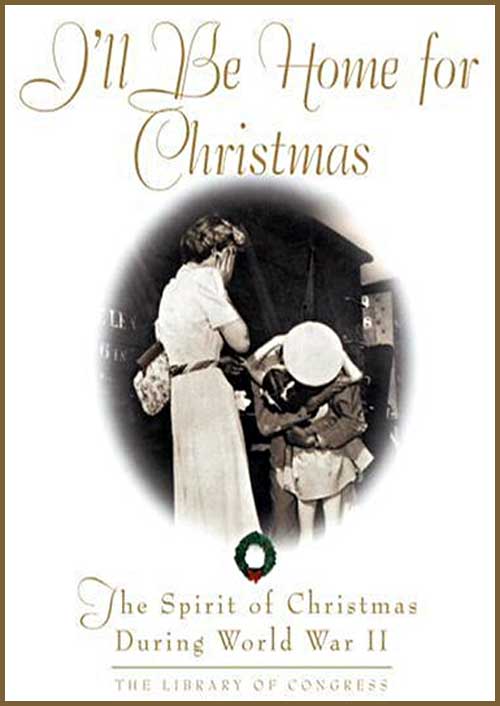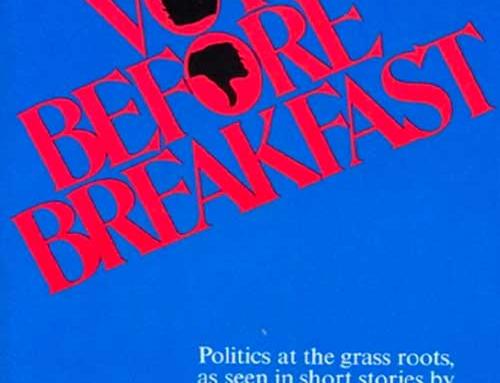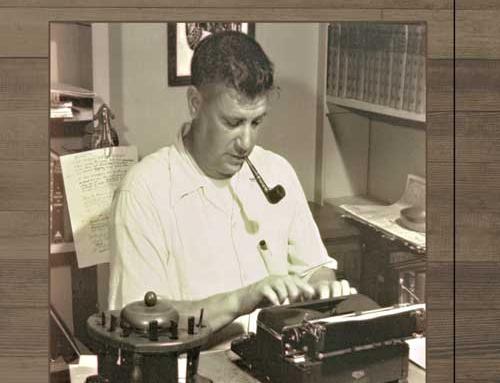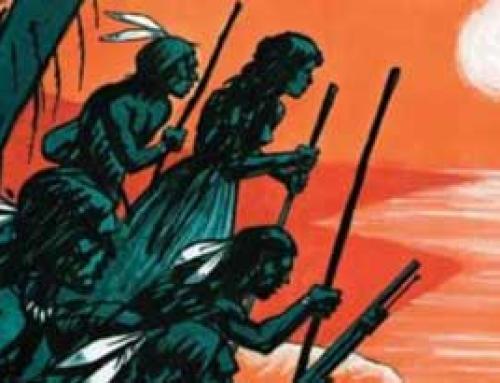As a gift to The Daily Independent readers, the Jesse Stuart Foundation is pleased to share a story from “I’ll Be Home for Christmas,” a collection of true stories from the Library of Congress that celebrates the spirit of Christmas during World War II. This story is entitled “Death of a Pilot.”
We dreaded Christmas that year. It was 1944, and it seemed that the war would never be over for our family.
 Born in the Midwest, my brother Bob rode horseback to school but wanted to fly an airplane from the first day he saw one. By the time he was twenty-one we were living in Seattle. When World War II broke out, Bob headed for the nearest recruitment office. Slightly built, skinny like his father, he was ten pounds underweight.
Born in the Midwest, my brother Bob rode horseback to school but wanted to fly an airplane from the first day he saw one. By the time he was twenty-one we were living in Seattle. When World War II broke out, Bob headed for the nearest recruitment office. Slightly built, skinny like his father, he was ten pounds underweight.
Undaunted, he persuaded Mother to cook every fattening food she could think of. He ate before meals, between meals, and after meals. Finally, he passed the weigh-in with eight ounces to spare.
When he was named Hot Pilot of primary training school and later involuntarily joined the “Caterpillar Club” (engine failure causing the bailout) at St. Mary’s California, we shook our heads and worried. Mother prayed. Bob was born fearless, and she knew it. Before graduating, he applied for transfer to Marine Air Corps at Pensacola, Florida. He trained on torpedo bombers that were being sent into combat overseas.
Bob died under enemy fire over New Guinea in the plane he wanted so desperately to fly.
Mother’s faith sustained her, but father aged before our eyes. He would listen politely when the minister came to call, but we knew Daddy was bitter. He dragged himself to work every day but lost interest in everything, including his beloved Masonic club. He wanted a Masonic ring. At Mother’s insistence, he’d started saving for the ring, but that ceased, too.
I dreaded the approach of Christmas. My late brother had loved Christmas. His surprises were legendary: a doll house made at school, a puppy hidden in a mysterious place for our little brother, an expensive dress for Mother bought with the very first money he ever earned. Everything had been a surprise.
What would Christmas be without Bob? Not much. Family was coming, so we went through the motions as much for his memory as anything, but our hearts weren’t in it.
On December 23, an official looking package arrived. My father watched stone-faced as Mother unpacked Bob’s dress blues. Silence hung heavy. As she
refolded the uniform to put it away, a mother’s practicality resurfaced, and she went through the pockets almost by rote.
In a small inside pocket was a folded $50 bill with a tiny note in Bob’s familiar handwriting: “For Dad’s Masonic ring.”
If I live to be one hundred, I will never forget the look on my father’s face. Some kind of transformation took place – a touch of wonder, a hint of joy, a quiet serenity that was glorious to behold. Oh, the healing power of love! He stood transfixed, staring at the note and the trimly folded bill in his hand for what seemed an eternity, then walked to Bob’s picture hanging prominently on the wall and solemnly saluted. “Merry Christmas, son,” he murmured, and turned to welcome Christmas.
This book and dozens of other Christmas books are available at the Jesse Stuart Foundation Bookstore at 4440 13th Street in Ashland or on this website. For more information, contact the JSF at 606.326.1667 or email jsf@jsfbooks.com.
By James M. Gifford
JSF CEO & Senior Editor
As a gift to The Daily Independent readers, the Jesse Stuart Foundation is pleased to share a story from “I’ll Be Home for Christmas,” a collection of true stories from the Library of Congress that celebrates the spirit of Christmas during World War II. This story is entitled “Death of a Pilot.”
We dreaded Christmas that year. It was 1944, and it seemed that the war would never be over for our family.
Born in the Midwest, my brother Bob rode horseback to school but wanted to fly an airplane from the first day he saw one. By the time he was twenty-one we were living in Seattle. When World War II broke out, Bob headed for the nearest recruitment office. Slightly built, skinny like his father, he was ten pounds underweight.

Undaunted, he persuaded Mother to cook every fattening food she could think of. He ate before meals, between meals, and after meals. Finally, he passed the weigh-in with eight ounces to spare.
When he was named Hot Pilot of primary training school and later involuntarily joined the “Caterpillar Club” (engine failure causing the bailout) at St. Mary’s California, we shook our heads and worried. Mother prayed. Bob was born fearless, and she knew it. Before graduating, he applied for transfer to Marine Air Corps at Pensacola, Florida. He trained on torpedo bombers that were being sent into combat overseas.
Bob died under enemy fire over New Guinea in the plane he wanted so desperately to fly.
Mother’s faith sustained her, but father aged before our eyes. He would listen politely when the minister came to call, but we knew Daddy was bitter. He dragged himself to work every day but lost interest in everything, including his beloved Masonic club. He wanted a Masonic ring. At Mother’s insistence, he’d started saving for the ring, but that ceased, too.
I dreaded the approach of Christmas. My late brother had loved Christmas. His surprises were legendary: a doll house made at school, a puppy hidden in a mysterious place for our little brother, an expensive dress for Mother bought with the very first money he ever earned. Everything had been a surprise.
What would Christmas be without Bob? Not much. Family was coming, so we went through the motions as much for his memory as anything, but our hearts weren’t in it.
On December 23, an official looking package arrived. My father watched stone-faced as Mother unpacked Bob’s dress blues. Silence hung heavy. As she
refolded the uniform to put it away, a mother’s practicality resurfaced, and she went through the pockets almost by rote.
In a small inside pocket was a folded $50 bill with a tiny note in Bob’s familiar handwriting: “For Dad’s Masonic ring.”
If I live to be one hundred, I will never forget the look on my father’s face. Some kind of transformation took place – a touch of wonder, a hint of joy, a quiet serenity that was glorious to behold. Oh, the healing power of love! He stood transfixed, staring at the note and the trimly folded bill in his hand for what seemed an eternity, then walked to Bob’s picture hanging prominently on the wall and solemnly saluted. “Merry Christmas, son,” he murmured, and turned to welcome Christmas.
This book and dozens of other Christmas books are available at the Jesse Stuart Foundation Bookstore at 4440 13th Street in Ashland or on this website. For more information, contact the JSF at 606.326.1667 or email jsf@jsfbooks.com.
By James M. Gifford
JSF CEO & Senior Editor





